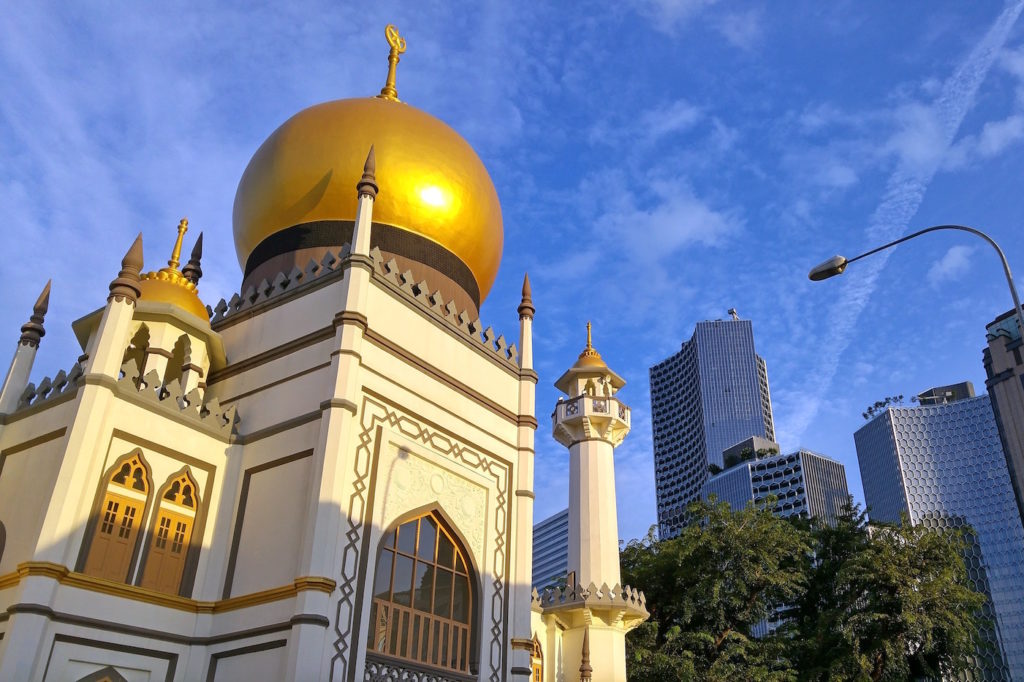Socrates: Take a look round, then, and see that none of the uninitiated are listening. Now by the uninitiated I mean: the people who believe in nothing but what they can grasp in their hands, and who will not allow that action or generation or anything invisible can have real existence.
Plato, Theaetetus
A dogmatic belief in objective value is necessary to the very idea of a rule which is not tyranny or an obedience which is not slavery.
CS Lewis, The Abolition of Man
Start your day with Public Discourse
Sign up and get our daily essays sent straight to your inbox.A forty-foot cross stands alongside a highway on government-owned land in the DC suburb of Bladensburg, Maryland. The cross, built in 1919 as a monument to local residents who died in World War I, was paid for with donations collected by the mothers of the dead soldiers. In 2014, three atheists, offended by the sight of the cross, sued the agency that owns the monument in federal court, arguing that the cross violates the Establishment Clause of the First Amendment. A divided court of appeals agreed, and on Friday, November 2, the Supreme Court agreed to hear the case.
When I drive by the Bladensburg war monument, I see a tribute to a community’s fallen men. Being a Muslim, in the cross I also see the symbol of a misconception about God’s oneness. Unlike our litigious atheist friends, however, I have no difficulty with the presence of the monument on public land. Rather, I am reassured and grateful for this reminder that I live in a land where religion has a public presence. That’s why I helped prepare a brief in the Supreme Court in support of the cross monument, as well as another Supreme Court brief in support of a New Mexico town’s Ten Commandments monument.
Islam and Christianity
Why would a Muslim support the public display of a forty-foot cross monument? Because displays with religious meaning on public land are a reminder that the United States preserves something of the substance of an older civilizational order grounded in faith in a transcendent God. America’s founding document declares that the nation comes into being by leave of God, proceeding from the self-evident truth that all human beings are “endowed by their creator with certain unalienable rights.” The founders saw religion as a description of reality, the basis of our obligations to one another, and a source of public good, and so they afforded it a special status and protection in the Constitution. The Establishment Clause was not intended, as many believe, to drive religion from the public square; its authors did not see religion as a merely private matter but as something to be lived in public. Rather, the purpose of disestablishment was to strike a balance between numerous competing factions and to create conditions for religion to flourish by prohibiting government interference in its affairs, absent some tangible harm to the public. The Establishment Clause is at the service of the Free Exercise Clause.
By contrast, in the European continent that emerged from the revolutions of the nineteenth century, religion was deemed the enemy of human flourishing and a prison from which humanity needed to be liberated. The source of order was not God but man and his autonomous reason. The state was not neutral toward religion but was hostile to it and actively interfered with the people’s religious exercise. The public exercise of religion was seen, and continues to be seen, as a violation of others’ alleged right to be free from encountering religious symbols.
Islam differs from the Christianity of America’s founders in many ways. It firmly rejects the trinity and the Christian doctrine of salvation. But as in the Christian faith, our spiritual and moral order derives from our relationship with our Creator. Muslims worship the God who revealed Himself to Abraham and the Children of Israel, and we understand ourselves to be participants in the history of this revelation and the continuing drama of its fulfillment.
Likewise, for Muslims, God’s revelation is the foundation of our rights and duties toward our fellow man. The Quran obliges upon Muslims the substance of the Ten Commandments. It states that God has “honored the Children of Adam,” conferring on them a status that compels each of us to treat others with the dignity they are due irrespective of their religion. The Prophet warned against striking another person in the face because God created Adam in His image, and he said, “He who wishes to avoid hellfire and enter heaven should die believing in God and the Last Day, and do unto others what he wishes to be done unto him.” Thus, notwithstanding historical and current rivalries, the spiritual, intellectual, and cultural heritage of Christian and Islamic civilizations substantially overlap in their values, foundations of order, and Semitic and Greek roots.
For these reasons, Christianity and Islam share an inherent antipathy toward the ongoing ideological revolt against God that manifests itself in the militant secularism found in parts of continental Europe and Asia, and increasingly in the United States. The Quran says of such people, “They know only the outward appearance of the life of the world, and are heedless of the Hereafter.” This amounts to idolatry with the creation as the object of worship: and while Islamic theology deems Christians to be astray, it does not equate idolatry and Christianity. The fourteenth century scholar Ibn al-Qayyim wrote:
It is not accurate to put idol-worshippers and the People of the Book in the same category, because the disbelief of the polytheists is more severe than the disbelief of the People of the Book. For indeed, the People of the Book have with them (something) of monotheism, and some traces of the Prophets that the idol worshippers do not have. And they believe in the Day of Judgment and divine recompense and prophecies, unlike the idol worshippers.
Muslims and Christians Must Defend Against Secularists
The civilizational substance preserved in the American order is common to Islam, even if few or no Christians realize it. It is thus appropriate, even urgent, that American Muslims seek to preserve this order against encroachments by totalitarian secularism because doing so means preserving what remains of a civilizational order that proceeds from belief in God. For these secularists do not want simply to live peaceably within this order, which the constitutional settlement entitles them to do; rather, they want to scrap this settlement and replace it with their own totalizing vision of society in which good lies not in “regressive” religious traditions, but in the whim of the autonomous self.
Unfortunately, many of those who identify themselves as Christians are also willing to undermine this settlement, for the paradoxical reason that they believe Muslims threaten it and thus should be denied its protection. Some American Muslims understandably perceive this stance as an existential threat and so have chosen to support those who would drive religion from the public square. These Muslims have allied themselves with the same ongoing revolt against God that erupted in the French Revolution and that sees public religion as stupid, offensive, and an obstacle to progress. For such Muslims, their choice seems sensible because their allies have focused on dismantling the rights of Christians while (so far) mostly avoiding targeting Muslims.
Another reason that so many Muslims have found a home within progressivism and postmodernism is that, for many in our secular age, these ideological frameworks are replacing religion, with Islam itself becoming a source of ethnic identity rather than a relationship with the Creator and a spiritual foundation for a way of living. For others, Islam is something like a liberation theology that motivates action in the world but is disconnected from its transcendent source. As a result of these and other dynamics, many Muslims have remained on the sidelines as their allies undermine a constitutional arrangement that was founded on belief in God and secured substantial religious liberty for all sects.
The Austrian-American political philosopher Eric Voegelin wrote in 1953, “The true dividing line in the contemporary crisis does not run between liberals and totalitarians, but between the religious and philosophical transcendentalists on the one side and the liberal and totalitarian immanentist sectarians on the other side.” Though they may find one another’s faith to be defective and a certain path to hell, Muslims and Christians who are true to their faith and their nature are on the same side of this line. It would be naive not to recognize the powerful dynamics working against such an alignment, but it would be equally foolish not to recognize its dire necessity. For as Voegelin also said, “Once the transcendental anchorage is surrendered, the descent from the rational to the animal nature, so it seems, is inevitable.”














